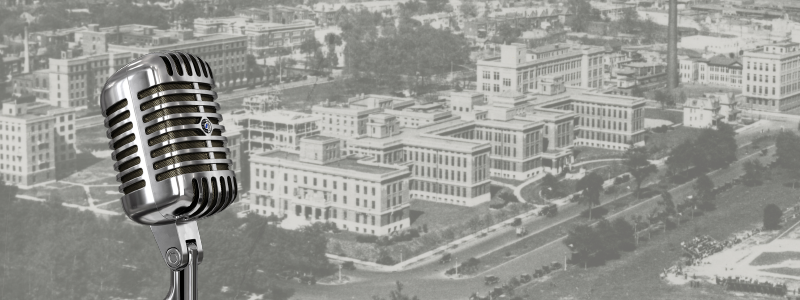
Washington University School of Medicine Oral Histories

Pamela Hinds Oral History
Interviewer
Bryan Sisk MD, MSCI
Files
Download Interview Transcript [PDF] (111 KB)
Summary
Pamela Hinds was interviewed by Brian Sisk on July 19, 2019 for approximately 56 minutes for the Pediatric Palliative Care Oral History Project.
Scope and Content
Dr. Pamela Hinds begins by identifying some early experiences in her nursing career that led her towards a career in pediatric palliative care. She recalls some of the challenges of funding research and reframing some of the discipline’s stigma around child-death from “physician failure” to a patient and family-informed process of the bio-psycho-social changes that were happening to the child. Dr. Hinds goes on to describe some of the successes in pediatric palliative care being the cultivation of the multi-disciplinary then interdisciplinary team approach as well as the changes in the relationship between providers and families. Dr Hinds describes the on-going challenges in pediatric palliative care being credibility, funding, and policy, but she relays her excitement to continue to help develop this specialty into a vision of patient-first advocacy and patient choice.
Biographical Information: Interviewee
Pamela Hinds PhD, RN, FAAN, is the Executive Director of the Department of Nursing Science, Professional Practice, and Quality, and Professor of Pediatrics at the George Washington University. She is currently serving on the National Academies of Sciences, Engineering and Medicine (NASEM) Roundtable on Quality Care for People with Serious Illness and the NASEM Committee on Childhood Cancers and Disability. Her expansive research career has focused on the pediatric cancer experience and quality of life. Dr. Hinds has authored and edited over 400 journal articles and book chapters and continues to advance the field of pediatric palliative care.
Biographical Information: Interviewer
Bryan Sisk, MD, MSCI is an Assistant Professor in Pediatric Hematology and Oncology and an Assistant Professor in General Medical Sciences as a member of the Bioethics Research Center at Washington University in St. Louis. He completed medical school at the Cleveland Clinic Lerner College of Medicine at Case Western Reserve University. He completed his clinical training at St. Louis Children’s Hospital and Washington University School of Medicine.
Dr. Sisk was a clinical fellow in pediatric hematology and oncology when he initiated this Pediatric Palliative Care Oral History Project. As a trainee, Dr. Sisk had a strong interest in palliative care, the approach to the suffering of children, and the history of medicine. Prior to initiating this project, Dr. Sisk performed an in-depth review of the development of pediatric palliative care as a discipline and philosophy. This research culminated in a publication entitled, “Response to Suffering of the Seriously Ill Child: A History of Palliative Care for Children” in the journal Pediatrics. However, this historical review was limited to textbooks and publications. It lacked the personal experience of caring for these children and inspiring the development of a new clinical discipline. Inspired by David Clark’s oral history of the adult hospice movement, Dr. Sisk began to plan this pediatric oral history project.
Of note, this collection of oral histories is incomplete, and many important figures have not (yet) been interviewed. Dr. Sisk’s goal is to continue adding to this collection create a rich repository of personal insights and wisdom from leaders who changed the field of pediatrics.
Interview Date
2019-07-19
Collection Identifier
OH154-S18
Length
Approximately 56 minutes.
Restrictions
Users wishing to publish (in whole, or in part) content taken from the audio or transcript of this oral history interview must request, sign, and return a Statement of Use form to the Becker Archives. For detailed information regarding publication and use of this oral history, contact the Becker Archives (arb@wusm.wustl.edu).
Recommended Citation
Pamela Hinds Oral History, OH154-S18, Bernard Becker Medical Library Archives, Washington University in St. Louis.
Disclaimer
The Becker Archives provides access to this oral history interview as a record of the past. This interview reflects the attitudes, perspectives, and beliefs of the interview participants, which may reflect outdated, biased, and offensive views and opinions. The Becker Archives does not endorse the views expressed in this interview, which may contain materials offensive to some users.




Notes
Access to the audio recording for this oral history may be obtained via approval of the archivists at Becker Library. Contact the archives for more information (arb@wusm.wustl.edu).